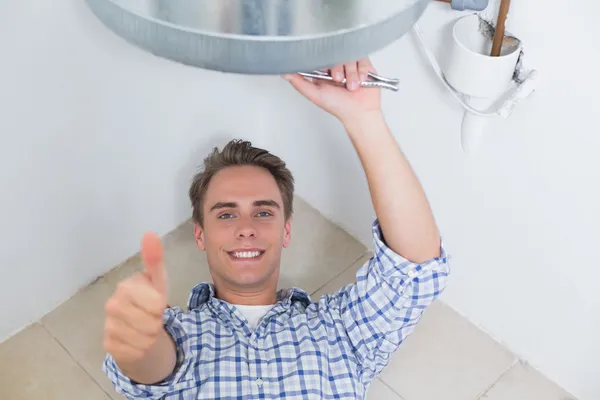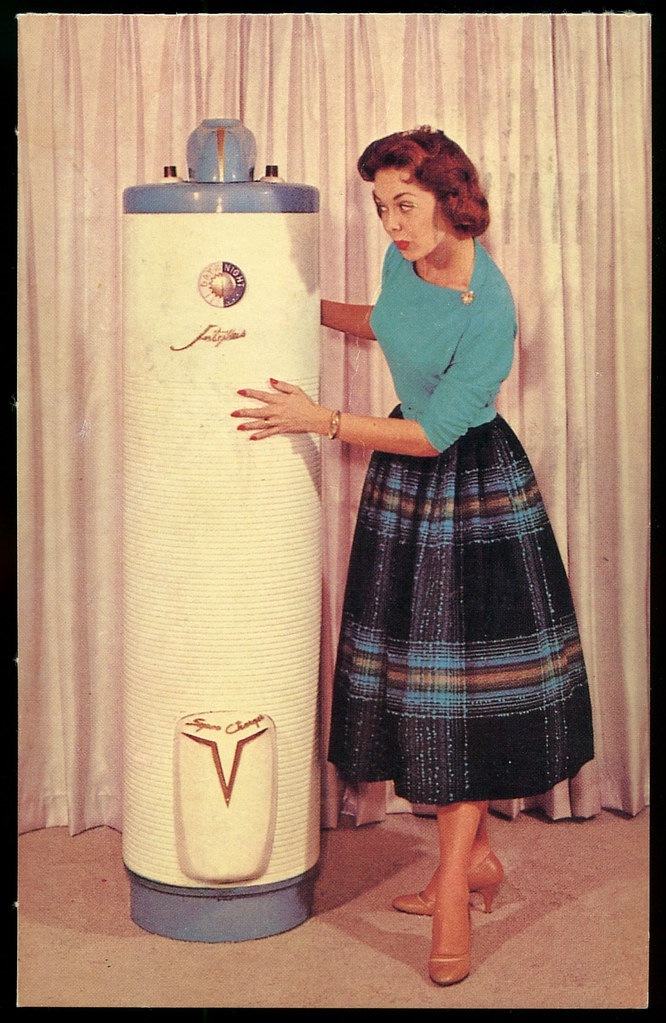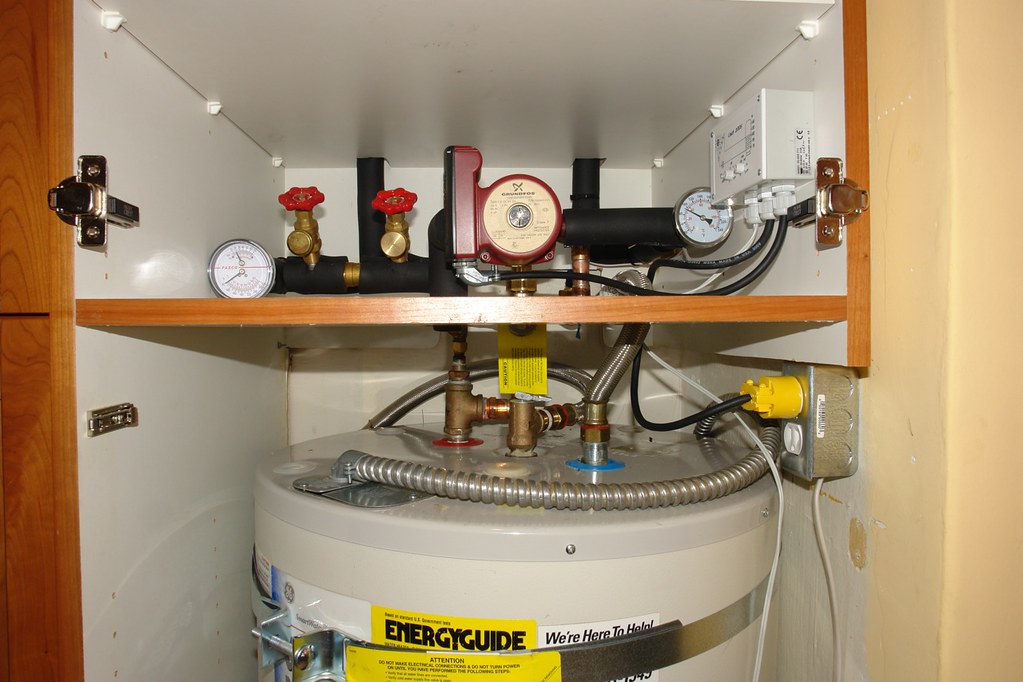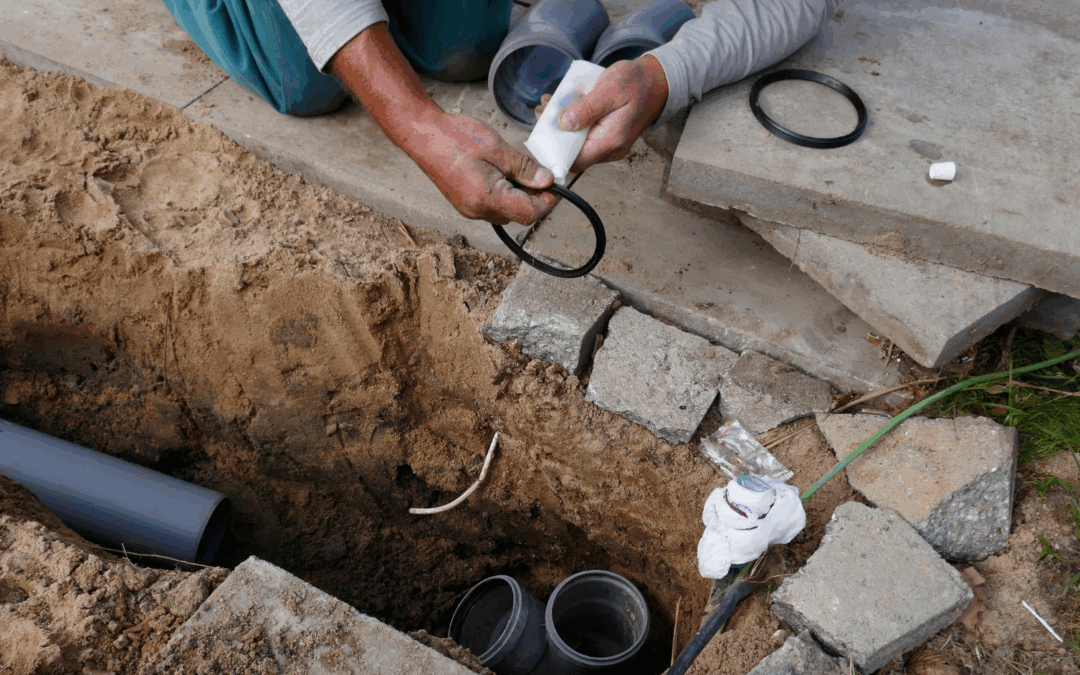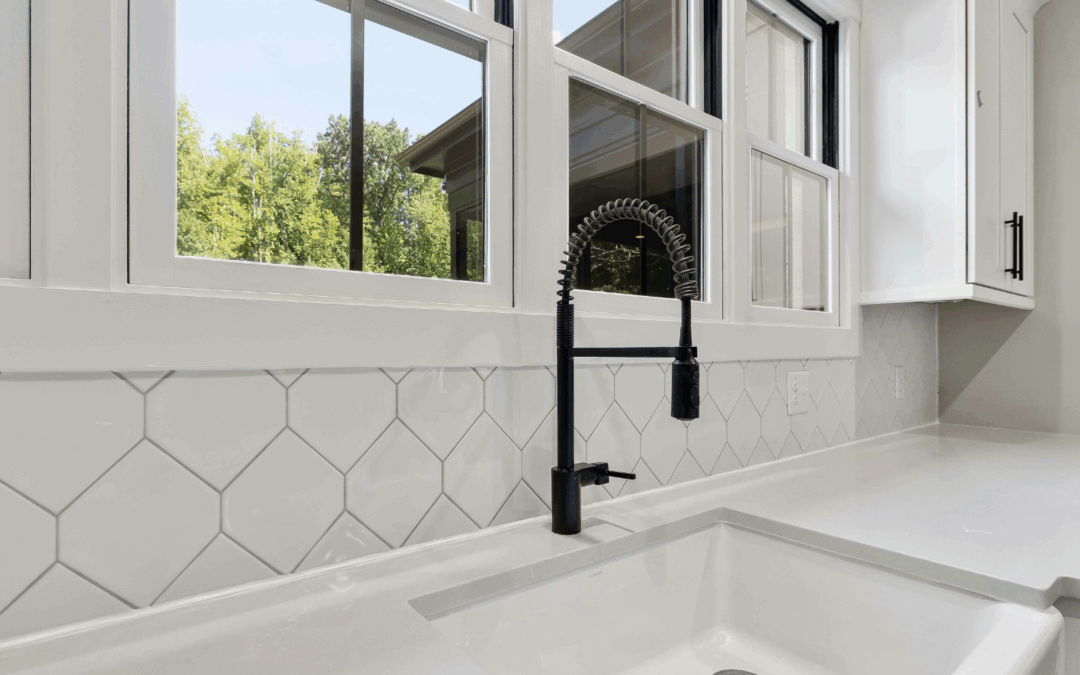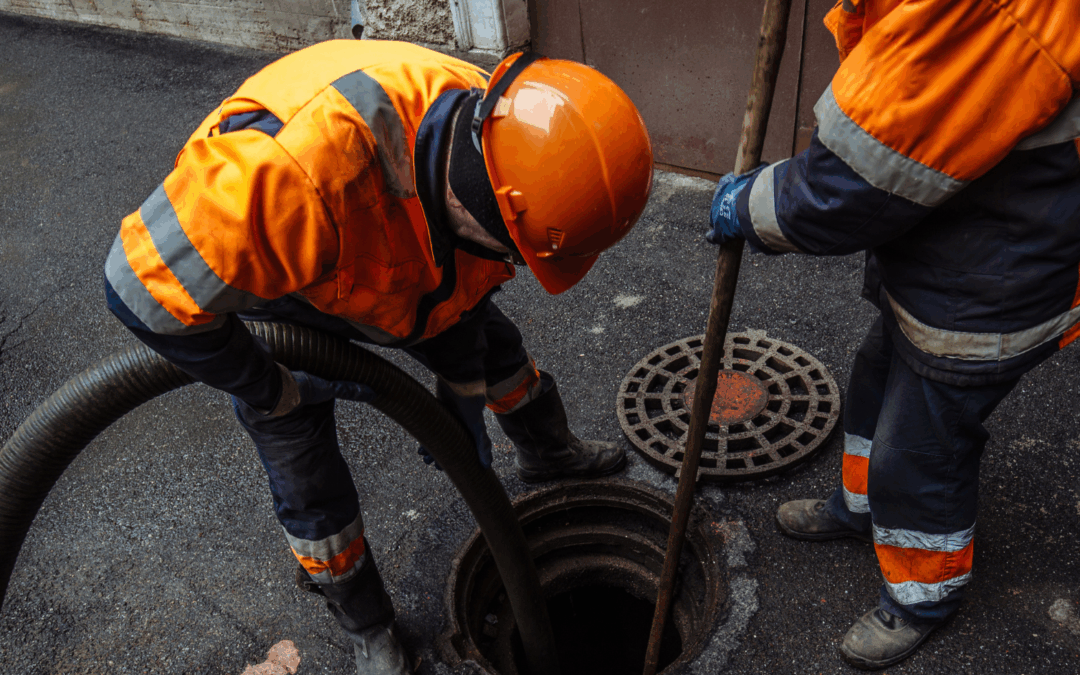Modern water heaters are a vital component of every home, ensuring access to hot water for daily needs. But when your current water heater reaches the end of its life—whether it’s due to leaks, corrosion, or inefficiency—it may be time to consider a replacement.
For homeowners and DIY enthusiasts looking to save money, decide on the right water heater model, or opt for a professional service, understanding the water heater installation process can be a game-changer.
This guide dives deep into everything you need to know about water heater installation, including the benefits of energy-efficient options like tankless water heaters, how to select the best unit for your needs, and what the replacement process entails. Read on to make an informed decision and ensure your next heater installation is smooth and stress-free.
Schedule Service Online
Get a free estimate so you know what you're signing up for
"*" indicates required fields
For Emergency Services Call: 410-255-9300
Why Upgrade to a New Water Heater?
Upgrading to a new water heater can provide numerous benefits for your home and lifestyle. Here are some compelling reasons to take the step toward a modern, efficient system:
- Energy Efficiency: Modern water heaters, especially tankless or high-efficiency models, use significantly less energy compared to older units. This not only reduces your environmental footprint but also lowers monthly utility bills.
- Consistent Hot Water Supply: Older water heaters may struggle to provide consistent hot water, particularly during high-demand periods. Upgrading ensures you’ll have a reliable supply of hot water whenever you need it, whether for showers, laundry, or dishwashing.
- Lower Maintenance Costs: Aging systems often require more frequent maintenance and repairs and regular maintenance, which can add up over time. Newer models are designed to operate with minimal maintenance, saving you both time and money.
- Improved Technology: Advances in water heater technology mean you can benefit from smart features, such as programmable settings, app-controlled operations, and enhanced safety features. These upgrades make your system more convenient and user-friendly.
- Space-Saving Designs: Tankless or compact water heaters are designed to take up less space, making them ideal for smaller homes or to free up extra storage room in utility areas.
- Environmental Impact: Newer water heaters are built to meet strict energy standards and often include eco-friendly features. This helps reduce greenhouse gas emissions, making your home more sustainable.
- Enhanced Home Value: Installing an upgraded water heater can add value to your property, especially if you choose a high-efficiency or modern model. This is an attractive feature for potential homebuyers.
Making the investment in a new water heater is about more than just getting hot water—it’s about creating a more efficient, reliable, and sustainable household. With so many advantages, upgrading could be one of the smartest home improvements you make.
Choosing the Right Water Heater for Your Home
Understand Your Options
There are several types of water heaters on the market, each offering unique advantages
Tank Water Heaters
Tank water heaters are one of the most traditional and widely used options for home water heating systems. They operate by storing a large quantity of hot water in a tank, which is readily available for use whenever needed. With sizes ranging from 20 to over 80 gallons, tank water heaters can cater to the needs of households of various sizes.
Advantages of Tank Water Heaters
- Affordability: Tank water heaters tend to have lower upfront costs compared to tankless models, making them an accessible option for many homeowners.
- Simplicity: Their straightforward design makes them easy to install, maintain, and replace when needed.
- Reliable Hot Water: Since the water is preheated and stored in the tank, you’ll have consistent access to hot water as long as the supply doesn’t run out
Tankless Water Heaters
Tankless water heaters, also known as on-demand water heaters, offer an energy-efficient and space-saving alternative to traditional tank models. Instead of storing hot water, these systems heat water instantaneously as it passes through the unit, providing a continuous supply of hot water when needed.
Benefits
- Energy Efficiency: Tankless water heaters only heat water when required, reducing energy consumption and lowering utility bills compared to tank models.
- Endless Hot Water: Since water is heated on demand, you won’t run out of hot water during extended use, making them ideal for larger households.
- Space-Saving Design: Their compact size allows them to be mounted on walls, freeing up valuable floor space.
- Longer Lifespan: Tankless water heaters often have a longer lifespan than traditional tank models, making them a solid long-term investment.
Gas Water Heaters
Gas water heaters are a popular choice for many households due to their reliability and efficiency. These systems use natural gas or propane to heat water, providing a steady supply of hot water for various household needs. Gas water heaters typically heat water faster than their electric counterparts, making them ideal for homes with high hot water demands.
Advantages
- Quick Heating: Gas water heaters heat water almost instantly, ensuring you rarely run out of hot water.
- Lower Operating Costs: Depending on local energy rates, natural gas is often more affordable than electricity, which can result in lower utility bills.
- Works During Power Outages: Since they rely on gas rather than electricity, gas water heaters will continue to function during power outages, offering added reliability.
Electric Water Heaters
Electric water heaters are a popular choice for many households due to their simplicity and ease of use. These systems rely on electricity to heat water through internal heating elements, making them a suitable option for areas where electricity is more readily available or cost-effective compared to natural gas.
Benefits
- Lower Initial Cost: Electric water heaters often have a lower upfront purchase and installation cost compared to their gas counterparts, making them an accessible choice for budget-conscious homeowners.
- Compact Design: These units are typically smaller and more compact, allowing for easier installation in tight spaces or locations where natural gas connections are unavailable.
- Energy-Efficient Options: Many modern electric water heaters come with advanced features, such as energy-saving modes or timers, to optimize energy use and further reduce operating costs.
- Safer Operation: Without the risk of gas leaks or the need for venting exhaust gases, electric water heaters present fewer potential safety concerns.
Assess Your Household’s Needs
To find the best option, start by evaluating your family size, water usage patterns, and energy preferences:
High water demand? Opt for a larger tank or tankless model with high gallons-per-minute (GPM) output.
Looking for cost savings? An energy-efficient electric unit might be your answer.
Small living spaces? Consider tankless or compact water heaters.
Top Water Heater Brands
When selecting a water heater, it’s essential to consider reputable brands that offer reliability, quality, and energy efficiency. Below are six top water heater brands, along with links to their official websites:
- Rheem: Rheem is a well-known brand offering a wide range of water heating solutions, including energy-efficient electric models. Visit Rheem’s Website.
- AO Smith: AO Smith provides innovative water heaters designed for performance and durability, catering to both residential and commercial needs. Visit AO Smith’s Website.
- Bradford White: Bradford White delivers high-quality water heaters, with a focus on advanced technology and reliability. Visit Bradford White’s Website.
- Bosch: Bosch specializes in energy-efficient and sustainable water heating systems, including electric tankless models. Visit Bosch’s Website.
- EcoSmart: EcoSmart offers compact, eco-friendly, and cost-effective electric water heaters, making them ideal for energy-conscious users. Visit EcoSmart’s Website.
- Kenmore: Kenmore provides a trusted lineup of water heaters, known for their affordability and practicality for household use. Visit Kenmore’s Website.
Choosing from these top brands ensures access to reliable, durable, and efficient water heaters tailored to various household needs.
Consider Installation Costs
The cost of water heater installation depends on the type of system and complexity of the job. For example:
- A new water heater installation with electrical wiring typically costs less than installing a gas model, which requires plumbing adjustments.
- Tankless water heater installation usually demands more upfront investment, but lower utility bills and longer lifespan quickly balance out the expenses.
The Water Heater Installation Process
Removing the Old Unit
The first step in replacement is disconnecting your old unit, which includes turning off the water, draining the tank, and disconnecting energy sources (electricity or gas). Older tanks may show signs of rust, leaks, or corrosion, so hiring a professional ensures this part of the process is smooth.
Preparing for the New Installation
Regardless of whether you’re installing an electric water heater or tankless unit, accurate measurements and proper materials are critical. Plumbers often check:
- Connections to water and power/gas supply
- Space constraints for fitting the water heater model
- Supporting systems like drains and vents to prevent damage or leaks.
Installing the New Water Heater
Here’s what happens during installation:
- Positioning and Securing: Aligning the unit in its designated spot.
- Connecting Water Lines: Ensuring tight seals to prevent leaks.
- Connecting Energy Sources: Running wiring for electric models and plumbing connections for gas heaters.
- Filling and Testing: Filling the system with water, checking for leaks, and testing temperature settings.
DIY enthusiasts, beware! Improper installation, especially for gas water heaters, can lead to costly damage or safety hazards. Always consult a professional installer for complex setups.
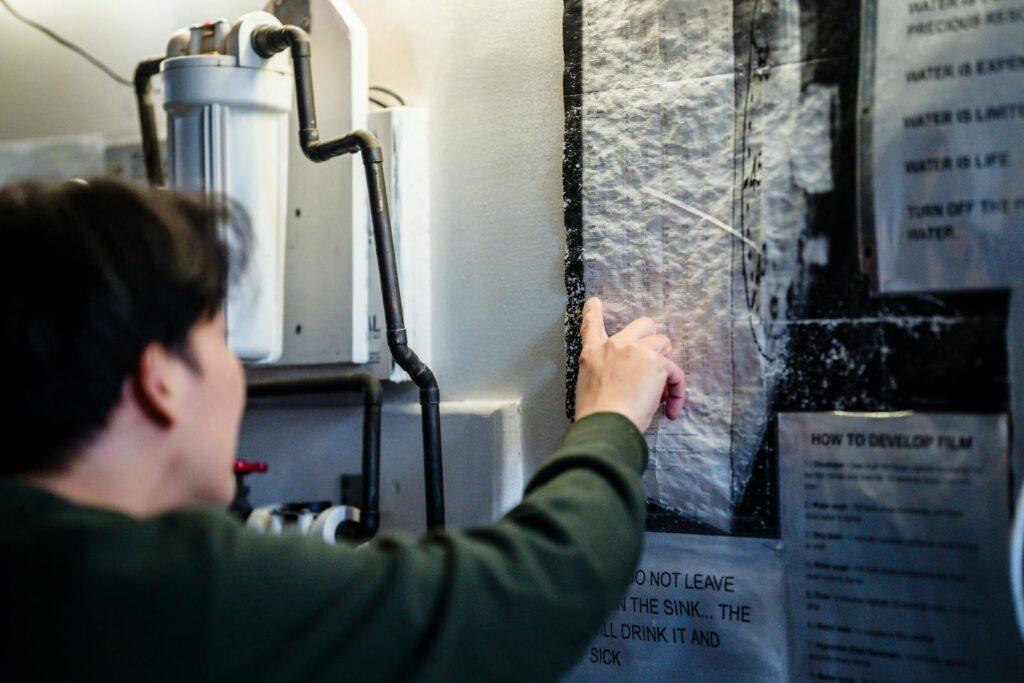
Maintenance Tips After Installation
To maximize the life of your new water heater and reduce maintenance needs, follow these best practices:
- Flush tanks annually to remove sediment and prevent clogs.
- Inspect connections and valves regularly to spot leaks or unusual wear.
- Adjust the thermostat to 120°F to balance safe temperatures with energy efficiency.
- Replace anode rods on traditional tanks every 3 to 5 years to prevent internal corrosion.
When to Call a Professional
For many homeowners, the idea of saving money with a DIY installation sounds tempting. However, certain scenarios require professional expertise:
- Upgrading to an energy-efficient tankless water heater that demands advanced plumbing or electrical work.
- Installing a new gas water heater where venting and gas lines need testing.
- Addressing leaks, corrosion, or old units close to failure.
A professional installer provides more than just labor—they ensure compliance with codes and standards, and often offer warranties for peace of mind. Many services, like same-day water heater replacements, are also available to minimize downtime.

Why Choose MD Sewer and Plumbing for Your Heater Installation?
At MD Sewer and Plumbing, we pride ourselves on delivering top-notch water heater solutions tailored to your needs. Here’s what you can expect:
- Expertise: Years of experience with tankless units, electric water heaters, and everything in between.
- Efficiency: Reliable service, including same-day installations for emergencies.
- Affordability: Transparent pricing for installation costs, with no hidden fees.
- Community-centric Values: We’re committed to delivering the best option for your household, helping to save money while being eco-friendly.

